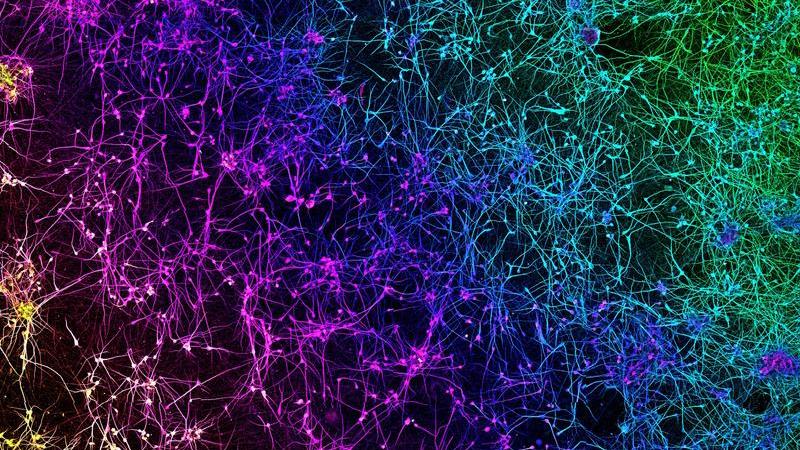

The Nikon Small World competition, often referred to as the ‘Oscars of microscopy,’ is one of the most prestigious events in the field of scientific photography. It highlights the unseen wonders of the microscopic world, with this year’s entries drawing global attention. Nick’s image was featured in National Geographic, alongside other stunning winning entries from over 2,100 submissions.
Each year, this competition garners widespread media coverage, with previous winners featured by New Scientist, BBC, The Guardian, Forbes, and more. This year is no different, as Nick’s image has been spotlighted once again, underscoring the impact of scientific visualisation. His prismatic photo captures a network of dopaminergic neurons, the main cell type that deteriorates in Parkinson’s disease.
I am consistently amazed by the technical depth, interdisciplinary scope, and artistic variety of photomicrographs produced by the microscopy community as highlighted by the Nikon Small World competition. To be considered among such beautiful images of our small world and such talented microscopists is an honour. – Dr Nick Gatford
Read the news story also on the Kavli Institute for Nanoscience Discovery (Kavli INsD) website.
more recommended stories
 Microplastic Exposure and Parkinson’s Disease Risk
Microplastic Exposure and Parkinson’s Disease RiskKey Takeaways Microplastics and nanoplastics (MPs/NPs).
 Sickle Cell Gene Therapy Access Expands Globally
Sickle Cell Gene Therapy Access Expands GloballyKey Summary Caring Cross and Boston.
 Reducing Alcohol Consumption Could Lower Cancer Deaths
Reducing Alcohol Consumption Could Lower Cancer DeathsKey Takeaways (At a Glance) Long-term.
 NeuroBridge AI Tool for Autism Communication Training
NeuroBridge AI Tool for Autism Communication TrainingKey Takeaways Tufts researchers developed NeuroBridge,.
 Population Genomic Screening for Early Disease Risk
Population Genomic Screening for Early Disease RiskKey Takeaways at a Glance Population.
 Type 2 Diabetes Risk Identified by Blood Metabolites
Type 2 Diabetes Risk Identified by Blood MetabolitesKey Takeaways (Quick Summary) Researchers identified.
 Microglia Neuroinflammation in Binge Drinking
Microglia Neuroinflammation in Binge DrinkingKey Takeaways (Quick Summary for HCPs).
 Precision Oncology with Personalized Cancer Drug Therapy
Precision Oncology with Personalized Cancer Drug TherapyKey Takeaways UC San Diego’s I-PREDICT.
 Iron Deficiency vs Iron Overload in Parkinson’s Disease
Iron Deficiency vs Iron Overload in Parkinson’s DiseaseKey Takeaways (Quick Summary for HCPs).
 Can Ketogenic Diets Help PCOS? Meta-Analysis Insights
Can Ketogenic Diets Help PCOS? Meta-Analysis InsightsKey Takeaways (Quick Summary) A Clinical.

Leave a Comment